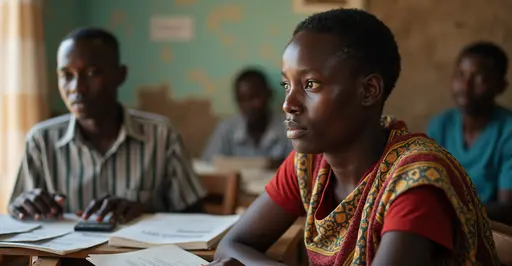Rising Interest Rates Threaten Developing Economies
The World Bank has issued a stark warning about growing debt vulnerabilities across emerging markets. According to its June 2025 Global Economic Prospects report, developing nations face unprecedented financial strain as global interest rates continue to climb. The combination of high borrowing costs, trade tensions, and sluggish growth has created a perfect storm for economies already weakened by recent global shocks.
Mounting Debt Pressures
Emerging market and developing economies (EMDEs) now owe over $315 billion in external debt - equivalent to 50% of their collective GDP. Debt service payments have skyrocketed 450% since 2015, reaching $66 billion annually. Countries like Argentina, Brazil, and Mexico are particularly vulnerable due to their dollar-denominated loans and reliance on commodity exports. When global commodity prices fluctuate, their repayment capacity diminishes rapidly.
Historical Parallels
The current situation echoes the Latin American debt crisis of the 1980s, known as "La Década Perdida" (The Lost Decade). During that period, countries reached a point where foreign debt exceeded earning power, leading to decades of economic stagnation. The World Bank cautions that without intervention, history could repeat itself with even more severe consequences given today's interconnected global economy.
Regional Impacts
The report highlights concerning trends across developing regions:
- Sub-Saharan Africa faces 3.7% growth with high government debt limiting fiscal space
- Latin America projects only 2.3% growth amid trade barriers
- Low-income countries struggle with debt costs exceeding development budgets
World Bank Chief Economist Indermit Gill stated: "The weakest growth outlook in 17 years outside recessions threatens to reverse decades of poverty reduction progress. Global cooperation is urgently needed to restore stability."
Policy Recommendations
The Bank recommends three key actions:
- Strengthen fiscal resilience through responsible borrowing
- Implement structural reforms to attract private investment
- Enhance global cooperation on trade and debt relief initiatives
With over 60% of low-income countries already in debt distress, the time for decisive action is now. The full report is available on the World Bank website.

 Nederlands
Nederlands
 English
English
 Deutsch
Deutsch
 Français
Français
 Español
Español
 Português
Português










